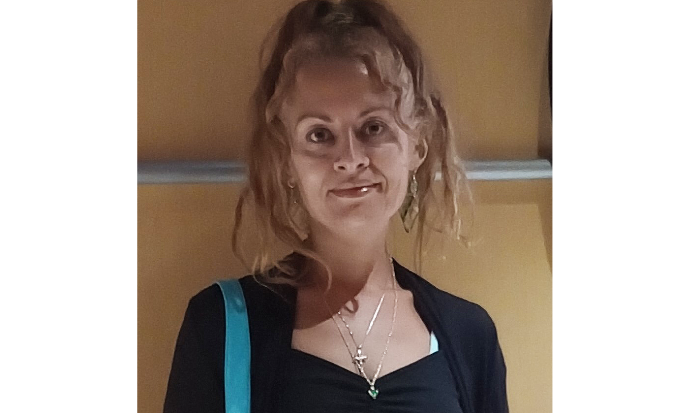
Professor of Sociology Dr. Teresa Varriale Gonzalez just finished a busy year as the 2024/2025 Scholar in Residence, but the work will continue. Varriale Gonzalez, who is also an English instructor at the Adult Community Learning Center, is making significant strides in supporting English learners through her research on Culturally and Linguistically Responsive Pedagogy (CLRP).
As a multilingual speaker herself and a parent whose child participated in an ESL program, Varriale Gonzalez brings a firsthand perspective to her research.
"I started to notice things that didn't work very well for students whose main language wasn't English," she explained.
This personal insight, combined with her academic expertise, led her to apply for the Scholar in Residence program, with a focus on utilizing students' home culture, language and identity to positively impact their English acquisition. She credited support from Vice President for Academic Affairs Kathy Rentsch as a factor in the success of the program.
Through surveys, focus groups, and individual interviews, Varriale Gonzalez has uncovered important insights about QCC’s English learners, such as the fact that many of them hold degrees, including master's degrees, from their home countries. They also consistently ask for additional support, especially with technology. Generally, these students demonstrate a strong sense of belonging and appreciate the flexibility of QCC's programs.
Varriale Gonzalez also praised QCC faculty and staff for being dedicated to and supportive of English learners. She noted that while many faculty don’t have formal training, they intuitively employ cultural awareness and translanguaging, a technique that leverages students’ existing language in the classroom. According to said Varriale Gonzalez, using these student-centered techniques can help students feel welcomed and acknowledged that their culture is valued.
Varriale Gonzalez's research has yielded several suggestions for improving support:
For Faculty:
- Use simple icebreakers to learn about students' backgrounds
- Incorporate a few phrases in students' native languages
- Include cultural elements in assignments
- Utilize peer support by having students help translate for classmates
For the Institution:
- Expand professional development in culturally responsive pedagogy
- Hire more multilingual staff, especially in departments that require paperwork and planning for the future
- Increase technological support such as translation software
- Create dedicated support spaces for English learners
- Revitalize multicultural programming to engage all students
One of her favorite aspects of the work has been the Learning Community of Practice and book club she hosts, dedicated to CLRP.
The monthly meetings, which began with Zaretta Hammond's "Culturally Responsive Teaching and the Brain," provide faculty and staff who work with non-native English speakers an opportunity to share thoughts, concerns and best practices.
Varriale Gonzalez also recently presented her research on the benefits of journaling for English language learners at the Massachusetts Association of Teachers of Speakers of Other Languages (MATSOL) conference, where her work was enthusiastically received by educators from across the state.
"I hope the students' voices will be heard and we can continue to make change,” she emphasized, noting the increase in English language learners in the QCC community.
Through her dedicated work, Varriale Gonzalez is not just studying best practices, she's implementing them and creating a more inclusive and supportive environment for all QCC students.
To learn more about joining the CLRP Learning Community of Practice, contact Dr. Varriale Gonzalez at tgonzalez@qcc.mass.edu.
Check out next month's newsletter to hear about the next Scholar in Residence, Professor of Computer Science Hao Loi!
